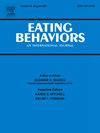Beyond thinness: The contribution of muscularity-oriented disordered eating to clinical impairment across cultures
IF 2.4
3区 医学
Q2 PSYCHIATRY
引用次数: 0
Abstract
Muscularity-oriented disordered eating (MODE) has been linked to negative outcomes, even when controlling for thinness-oriented disordered eating; however, its contribution to clinical impairment across demographic groups remains understudied. This study examined whether MODE independently contributes to clinical impairment while accounting for cognitive restraint, restricting, and purging, and whether this relationship differs by gender and country. Female (n = 1575) and male (n = 906) students from Canada, the United States, and Iran completed self-report measures of MODE, thinness-oriented disordered eating, and clinical impairment. Hierarchical multiple regressions were conducted with gender and country as moderators. Analyses were pre-registered on Open Science Framework. The addition of MODE to the model significantly accounted for 11 % of unique variance in clinical impairment. No significant moderation effects of gender and country were found. Results suggest that across women and men from both Western and non-Western cultural contexts, the unique aspects of MODE are associated with disruptions in daily functioning in multiple domains. These findings challenge the belief that dieting for muscularity is inherently beneficial for well-being. More clinical attention on MODE is warranted, such as targeted prevention and treatment efforts that address MODE specifically, rather than conceptualizing it as an extension of thinness-oriented eating disorders.
超越瘦:跨文化的以肌肉为导向的饮食失调对临床损害的贡献
以肌肉为导向的进食障碍(MODE)与不良后果有关,即使在控制以瘦为导向的进食障碍的情况下也是如此;然而,其对不同人口群体临床损害的影响仍未得到充分研究。本研究考察了 MODE 是否会在考虑认知抑制、限制和清除的情况下独立导致临床损害,以及这种关系是否因性别和国家而异。来自加拿大、美国和伊朗的女生(n = 1575)和男生(n = 906)完成了 MODE、以瘦为导向的饮食紊乱和临床损害的自我报告测量。以性别和国家为调节因素进行了层次多元回归。分析结果在开放科学框架上进行了预注册。在模型中加入 MODE 后,临床损伤的独特变异有了 11% 的显著改善。性别和国家没有明显的调节作用。结果表明,在西方和非西方文化背景下的女性和男性中,MODE 的独特方面与多个领域的日常功能障碍有关。这些研究结果对 "节食增肌固然有益于身心健康 "的观点提出了质疑。临床上有必要对 MODE 给予更多关注,例如有针对性地预防和治疗 MODE,而不是将其视为以瘦为导向的饮食失调症的延伸。
本文章由计算机程序翻译,如有差异,请以英文原文为准。
求助全文
约1分钟内获得全文
求助全文
来源期刊

Eating behaviors
Multiple-
CiteScore
4.20
自引率
3.60%
发文量
65
审稿时长
60 days
期刊介绍:
Eating Behaviors is an international peer-reviewed scientific journal publishing human research on the etiology, prevention, and treatment of obesity, binge eating, and eating disorders in adults and children. Studies related to the promotion of healthy eating patterns to treat or prevent medical conditions (e.g., hypertension, diabetes mellitus, cancer) are also acceptable. Two types of manuscripts are encouraged: (1) Descriptive studies establishing functional relationships between eating behaviors and social, cognitive, environmental, attitudinal, emotional or biochemical factors; (2) Clinical outcome research evaluating the efficacy of prevention or treatment protocols.
 求助内容:
求助内容: 应助结果提醒方式:
应助结果提醒方式:


